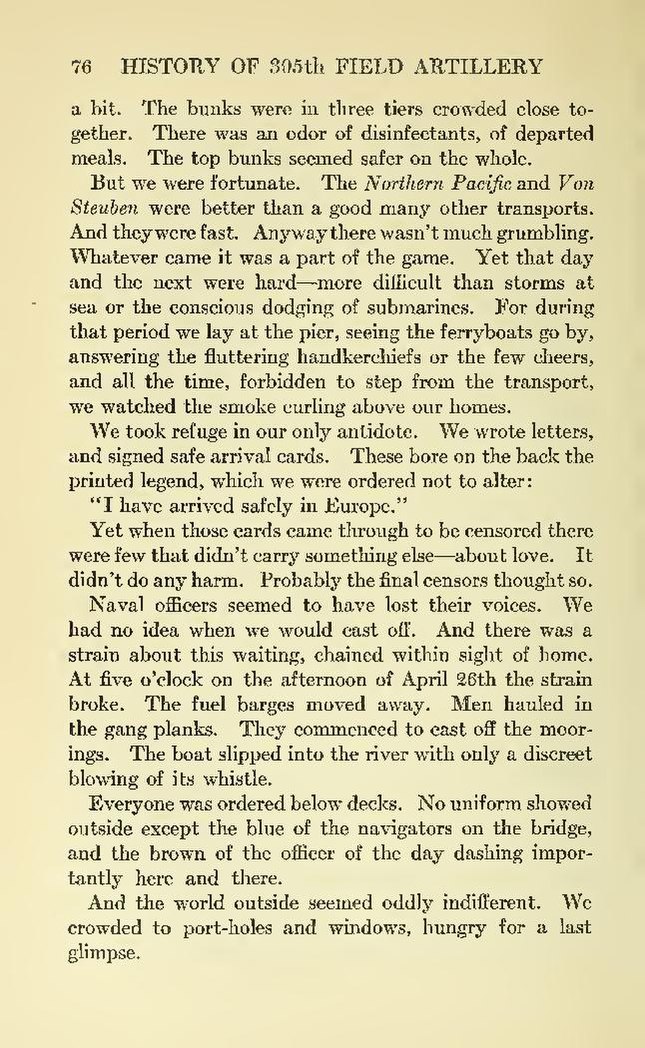a bit. The bunks were in three tiers crowded close together. There was an odor of disinfectants, of departed
meals. The top bunks seemed safer on the whole.
But we were fortunate. The Northern Pacific and Von Steuben were better than a good many other transports. And they were fast. Anyway there wasn't much grumbling. Whatever came it was a part of the game. Yet that day and the next were hard—more difficult than storms at sea or the conscious dodging of submarines. For during that period we lay at the pier, seeing the ferryboats go by, answering the fluttering handkerchiefs or the few cheers, and all the time, forbidden to step from the transport, we watched the smoke curling above our homes.
We took refuge in our only antidote. We wrote letters, and signed safe arrival cards. These bore on the back the printed legend, which we were ordered not to alter: "I have arrived safcly in Europc."
Yet when those cards came through to be censored there were few that didn't carry something else about love. It didn't do any harm. Probably the final censors thought so. Naval officers seemed to have lost their voices. We had no idea when we would cast off. And there was a strain about this waiting, chained within sight of home. At five o'clock on the afternoon of April 26th the strain broke. The fuel barges moved away. Men hauled in the gang planks. They commenced to cast off the moorings. The boat slipped into the river with only a discreet blowing of its whistle.
Everyone was ordered below decks. No uniform showed outside except the blue of the navigators on the bridge, and the brown of the officer of the day dashing importantly here and there.
And the world outside seemed oddly indifferent. We crowded to port-holes and windows, hungry for a last glimpse.
